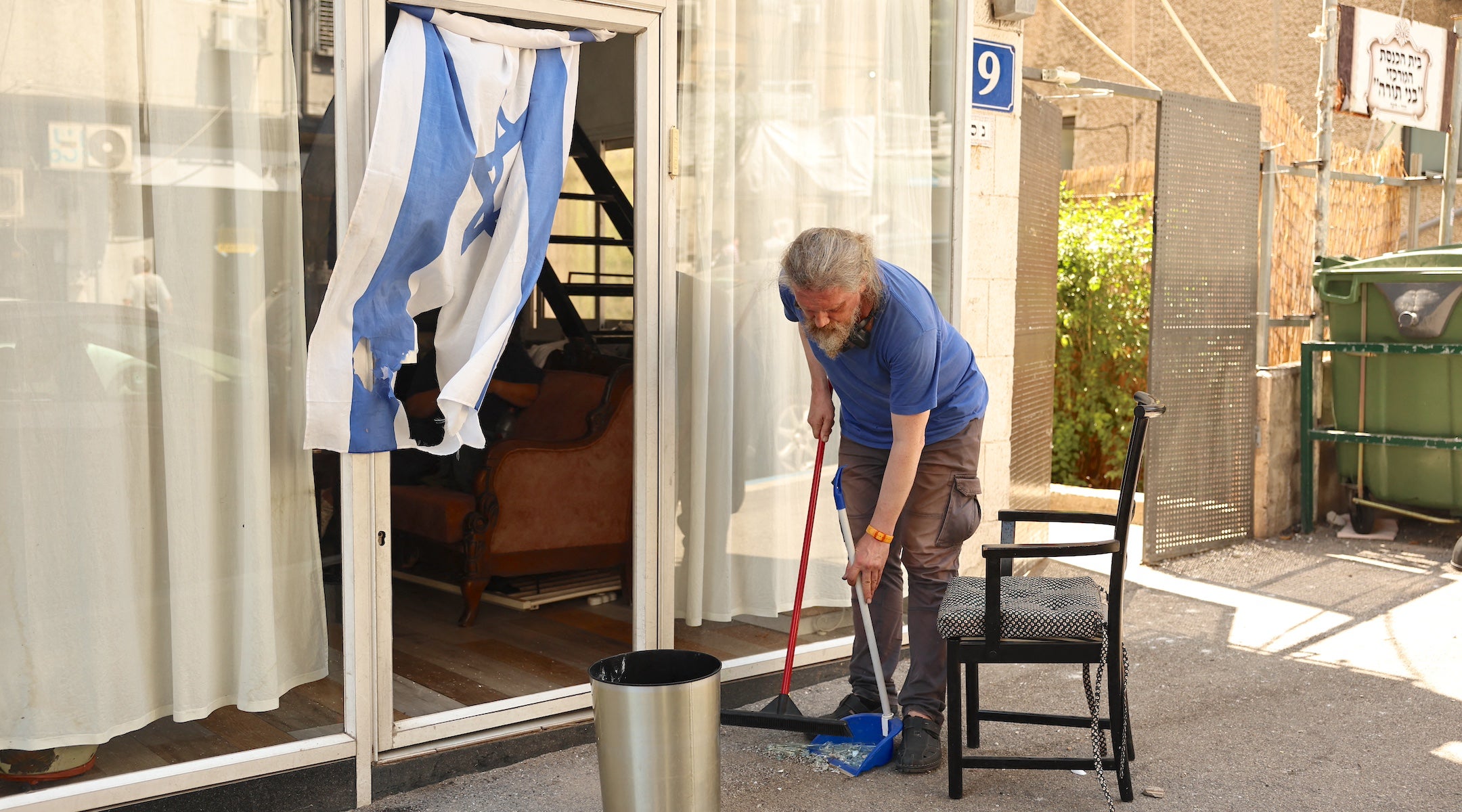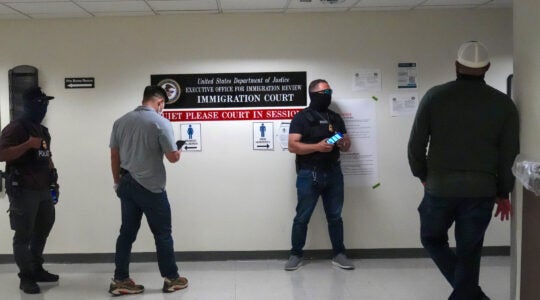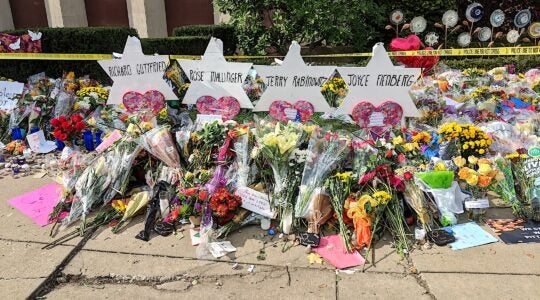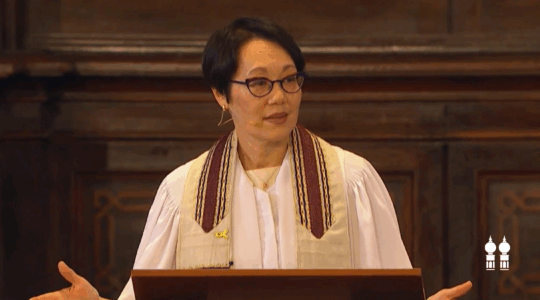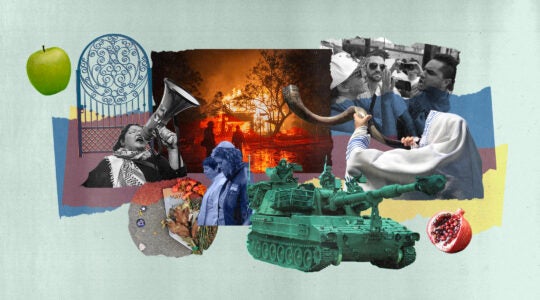The late singer-songwriter Meir Ariel had a hit song that Israelis tend to invoke at times of crisis: “Avarnu et Par’o, Na’avor Gam et Zeh” — If we survived Pharoah, we’re going to survive this.
You heard it during the COVID pandemic, during the street protests over the government’s planned judicial overhaul, after the trauma of Oct. 7, and yet again earlier this month, when Israel attacked Iran and Iran responded with a hail of missiles.
It suggests a society that is not only used to crisis, but also resigned and resilient. It’s the moral to a story Israelis often tell about themselves, but is it true? And when the triggers begin to multiply — fear for the missing hostages, the scramble to safe rooms and bomb shelters, deep internal rifts over the government and its top leader — how much can Israelis take?
Bruria Wiesel Adini studies that question as the head of the Department of Emergency Management and Disaster Medicine at Tel Aviv University’s School of Public Health. She and her colleagues at TAU and Tel-Hai College have tracked the resilience of Jewish Israelis since the COVID lockdown, with regular questionnaires put to the same people.
Their most recent survey was conducted June 12 and 13, the first and second days of Israel’s strikes on Iran. Like previous studies, the latest results show that when crises strike, Jewish Israelis score high in personal resilience and morale, adjusting to whatever seems to be thrown at them.
On the other hand, researchers continue to find declines in resilience, hope and, crucially, trust in the government at the national level.
“That is very concerning, because if we want to survive here, we need that cohesion – you know, like the slogan in Israel: ‘beyachad nenatzeach, together, we will win,’” Adini told me in an interview Tuesday, shortly after Israel and Iran agreed to a ceasefire. “But if we’re not together, then what does that say about our capacity to actually cope with all of these different adversities and all the crises that we still may need to face?”
Bruria’s team recommends that the government do more to build this societal cohesion by communicating its goals transparently and putting partisanship aside. In times of normalcy (a relative term in Israel), they support programs that encourage community engagement, volunteerism and social support networks
Adini, 69, has a PhD in health systems management. She specializes in emergency preparedness and healthcare system responses to mass casualty events and disasters. In our conversation, we spoke about what makes Israelis resilient and the deep divides that could shred the country’s social fabric.
Our interview was edited for length and clarity.
I wanted to talk to you when Israel launched its attacks on Iran, which opened by my count a fourth front in this current war, if you count Gaza, Lebanon, Yemen and Tehran. There’s a question I hear American Jews ask about the flood of bad and anxious news, which is, “how much can we take?” How much can Israelis take?
How much can we take? Whatever we need to. Whatever we need to face.
I’m a second-generation Holocaust survivor. Both my parents were in Auschwitz; they lost all their family. They were in camps, but they survived. They rebuilt their family. And I’m the example of that. So people have the ability to adjust their life to whatever life actually puts in their midst.
There are people who give up, because they don’t have any element of hope. They actually become ill and are not able to cope. But that’s not the majority of the population.
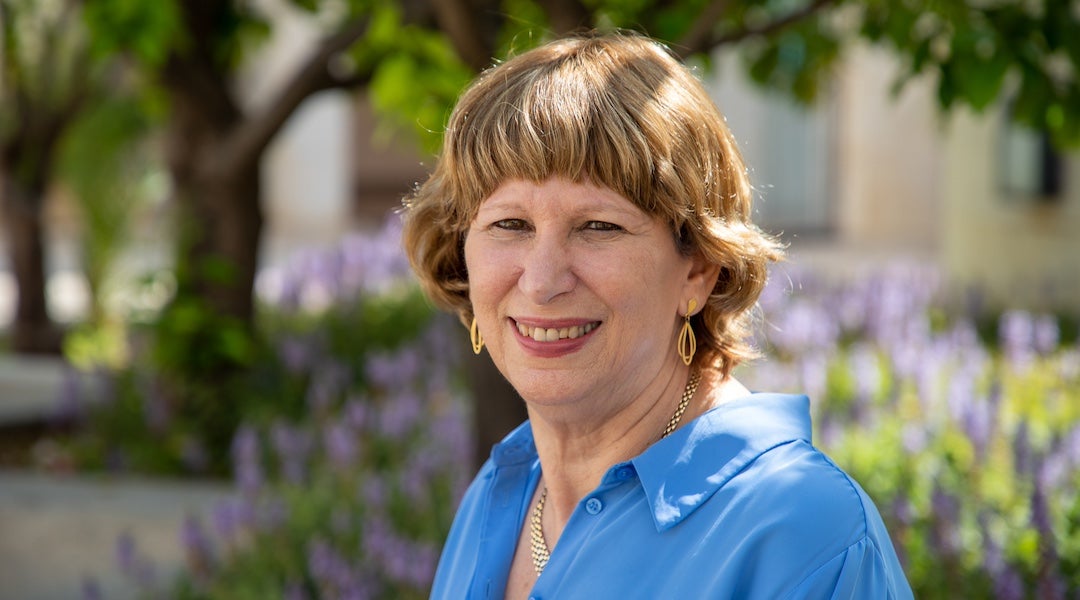
Bruria Wiesel Adini studies resilience as the head of the Department of Emergency Management and Disaster Medicine at Tel Aviv University’s School of Public Health. (Courtesy)
What does your data tell you about Israeli resiliency?
We measured adversity at its peak, in the week after Oct. 7, when it was a horrific attack and everyone in Israel was in shock, feeling devastated and not comprehending how this could happen. But at the same time, a level of both individual resilience and societal resilience rose very steeply.
We saw the same thing 12 days ago, in the night between the 12th and 13th of June, when there was the Israeli attack on Iran. What we saw again is a very substantial and statistically significant increase in the level of personal resilience and societal resistance.
What we’ve learned is that as the level of distress rises, also the level of resilience rises, not only here, but in other societies, like in Ukraine during their war. Because you rise to the situation, then you recruit all the resources that you can, all the power, both on the individual level and on the societal level, in order to be able to cope with that.
But it is not all good news, especially on the societal level. Your study assesses four components of societal resilience: patriotism, solidarity among people, trust in the government and the prime minister, and trust towards public institutions like the Knesset, the courts, the IDF, the police, education system and the media. Which of these components are under stress?
If you look at our graph of the four elements, from the first week after Oct. 7, to the 13th to 17th of June 2025, you see that the level of patriotism is highest in relation to the other three. And the lowest is the level of trust in the government and the prime minister, which shows you the rift within the Israeli society.
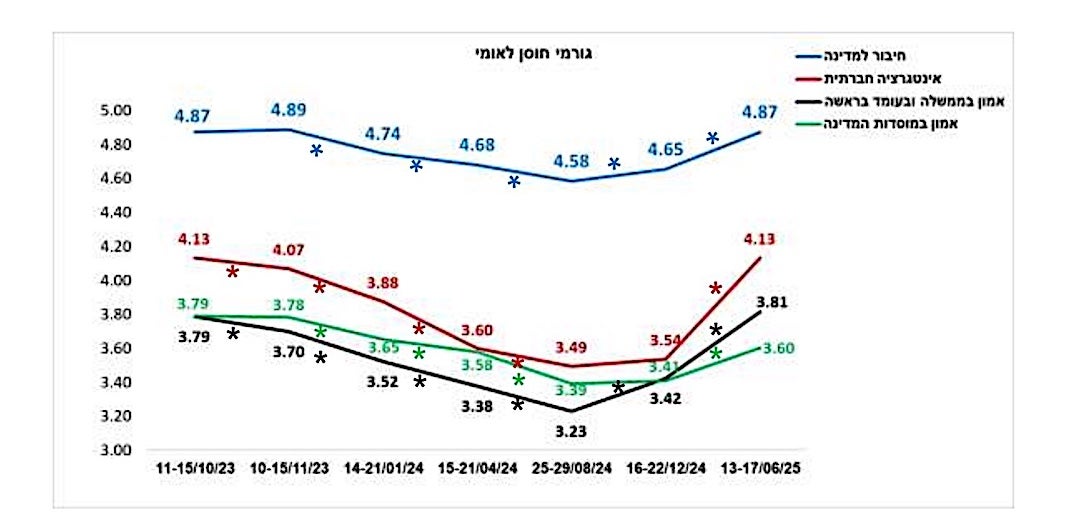
An ongoing study of societal resilience in Israel from Tel Aviv University and Tel-Hai College measured four components of societal resilience in the nearly two years since Oct. 7, 2023: trust in the government and its leader (black), social integration or solidarity (red), patriotism (blue) and trust in state institutions (green). Respondents demonstrated patriotism as the factor with the highest level among the four. Trust in the government lagged the other measures. (Tel Aviv University)
There is also a very, very deep rift between those respondents that are supporters of the government and the ones that oppose the government. For example, one of the questions was, “to what extent do you feel that the government is doing all that is needed to return the hostages?” Throughout the war we saw a very, very substantial gap between the perceptions of those that support the government, that feel that the government is doing everything that is needed, versus the opposers that do not feel that. There is a big gap between the two populations. That is very concerning.
How so?
Because it’s very highly associated with the level of resilience of the group as a whole. I go back to the idea of hope. Hope is the basis for believing that despite the great adversity, I believe that the future is going to be better. And here we see that there is, again, a substantial difference between the level of hope between those who trust and don’t trust the government. And here there is a feeling that many of the authorities are sometimes taking too much of a political stand and not coming from a more societal stand, not tending to everyone’s needs and expectations, especially the vulnerable people.
How does this erode resilience on a societal level?
It has taken a very huge toll. During the severe crisis in October 2023 and even November 2023 there was a very high perception of this social cohesion, but then it started to drop, and the decline is very, very, very steep. That is very concerning, because if we want to survive here, we need that cohesion — you know, like the slogan in Israel: “beyachad nenatzeach,” together we will win. But if we’re not together, then what does that say about our capacity to actually cope with all of these different adversities and all the crises that we still may need to face?
We see a small increase [in social cohesion] now after the attack in Iran, but it’s still very, very far from the levels that we saw after Oct. 7. We’re not in a good place concerning social solidarity and social cohesion, which is one of the main resources that we need in order to be able to cope effectively.
How do these feelings play out in Israeli society? Are there comparisons to what the United Sates went through as a result of COVID — challenges like isolation, violence in the family, depression, anxiety, post-traumatic stress disorder — as a result of now almost two years of war?
First of all, you know, there has been a detrimental impact on mental health. Another is obesity that we saw among children, which became more severe than it was before: less exercise, more sitting in front of screens, less healthy food. You see the impact in the education system and test scores.
Are there differences across Israeli society — say, among age groups?
Both in COVID and during the war, the retired population, ages 61 and up, have the highest resilience and the lowest levels of distress. The ones that actually are the most vulnerable are the “mid young” people, 31 to 40. They’re the ones whose financial situations are still sometimes unstable, and they’re concerned what is going to happen with their jobs and their position after the adversity. They have children in school. They are actually the backbone of society. They go to reserve duty, and they fight in the war and so on. So we identified them as the vulnerable age group, rather than the elderly.
Is there something particular to Israel — an ethos, or a shared history, or the sheer size of the country — that helps people either become resilient or approach trauma in a way different than other countries?
Israel has a very, very high level of perceived attachment to the country, the patriotism. I do a lot of research with Europeans. For them, the word “patriotism,” or even saying national resilience, seems to them very close to militarism. They perceive it as something negative. In Israel, that’s not the perception. Israeli people are very, very highly patriotic. Even in the most dire situations, a very low percentage thinks of leaving the country. There are people that have left, but the percentage is less than 6%, even when things get to be very, very harsh.
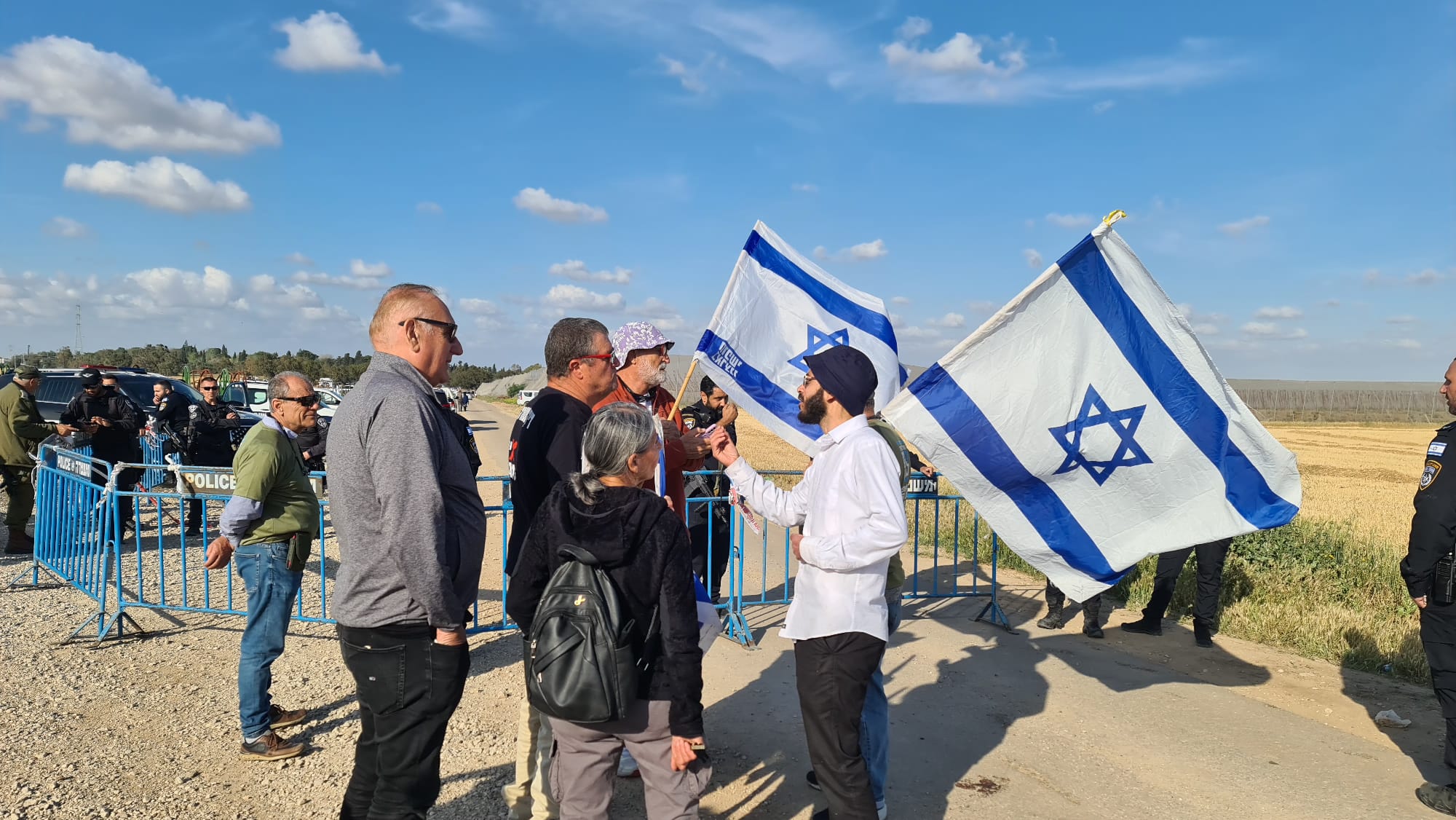
A settler, at right, faces off against protesters against the prospect of resettling Gaza, at a pro-settlement event in Israel’s Gaza envelope, April 15, 2025. “We’re not in a good place concerning social solidarity and social cohesion, which is one of the main resources that we need in order to be able to cope effectively,” said Burris Adini. (Deborah Danan)
I want to ask about something we see here in the United States compared to what the media offers in Israel. Here the media shows the extent of the destruction in Gaza, the daily death toll among civilians, the threat of starvation, accusations of war crimes. In addition to the anxiety about getting the hostages out, are Israelis anxious about the aims or impact of the war itself — on Israel’s reputation, on Palestinian civilians, on the possibilities for a real peace to emerge out of this?
First of all, I have to say that Israelis at large don’t really see the pictures of what is happening in Gaza. They get stories of what is happening to our soldiers, to the military, and what they’re doing in Gaza, they don’t mostly see the stories that people everywhere else in the world are seeing about the destruction, about children and women being impacted, people not having enough food, and so on.
You know, Israelis, after Oct. 7, became much less compassionate, saying “they want to kill us. They are one society. We don’t trust any of them.” The horrific consequences of what happened on Ot. 7 caused such devastation and anger that there’s a lot of opposition among many groups in Israel to providing humanitarian aid to Gazans.
I want very much to do the research on both sides of the border — I work with Palestinian researchers — and study together what the war does and how it impacts civilians. But it’s very, very challenging to do so because it is a sensitive and “rifted” discussion here in Israel. Many people oppose any attempt to actually understand what is happening there. There’s a very high level of consensus that Hamas cannot stay there, that Hamas are terrorists, but to learn about and believe that not all Gazans are Hamas or terrorists, that’s a very non-consensus topic in Israel.
I forgot to ask the most basic question at the beginning, which is, how are you doing? What have the last couple of weeks been like for you?
First of all, you need to adapt. For example, I have two daughters and three grandchildren. My eldest daughter’s husband [has been called to reserve duty] many weeks since Oct. 7, and he’s in Gaza. She has two children, one a year old and a four-and-a-half-year old. They don’t have a shelter in their home. She lives in Tel Aviv, very close to areas that are targeted. She and her children are here with me. She’s a physician. She’s considered an essential employee, so she has to go to work even when everyone stays at home. So until she comes home, I take care of my grandchildren.
The distress and the concern — we all feel it. We’re all very much concerned about what is going to happen to the country. What is the future here? What kind of future is it going to be for my grandchildren? But what’s been very, very helpful is that I’m very, very busy because of the research and my university position and so on. It is something that I always say when I’m asked, “What can we do to maintain resilience?” Maintain some routine, don’t be glued 24/7 to the television and the news, be there to support others and receive support. All of those things help you to cope with the situations.
It doesn’t mean that it passes by us. But, as I’ve said, I think we are a resilient society, certainly at an individual level.
JTA has documented Jewish history in real-time for over a century. Keep our journalism strong by joining us in supporting independent, award-winning reporting.

